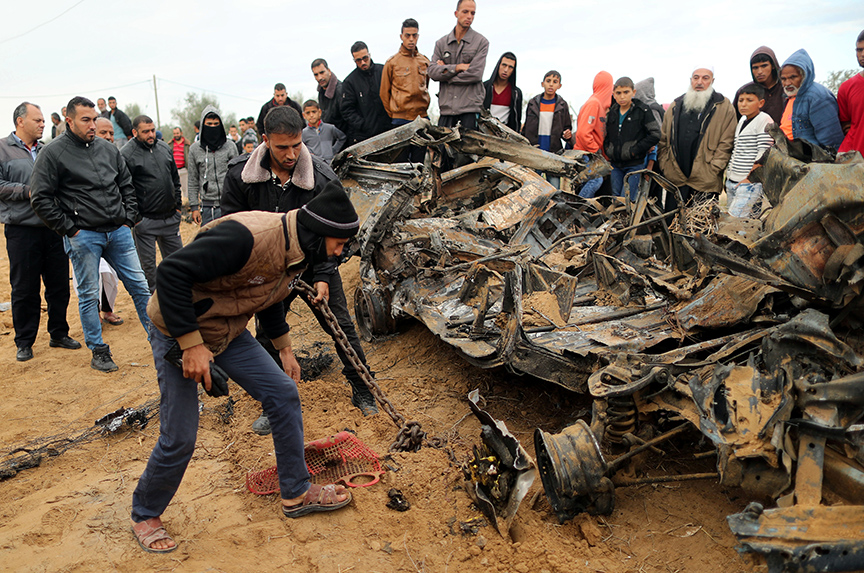A new round of violence has erupted in the Gaza Strip following an Israeli military raid on November 11 that killed a local Hamas commander. The undercover military operation by the Israel Defense Forces (IDF) took place in the Gaza Strip, a 141-square-mile territory on Israel’s southern border currently controlled by Hamas, which the United States, Israel, and the European Union categorize as a terrorist organization.
Gaza has continually been a zone of conflict since Hamas won parliamentary elections in January 2006 and took over complete control of the Strip in 2007 after a brief conflict with rival Palestinian faction Fatah. Recent years have seen a common pattern of rocket attacks or kidnappings by Hamas, responded to with military action and air strikes by the IDF. In 2014, Israel launched a seven-week military campaign in Gaza to weaken Hamas after the murder of three Israeli teenagers.
The November 11 operation appears to have been an undercover operation aimed at local Hamas leader Nur Barakeh, who was killed along with six other Palestinians and one Israeli army officer. In response to the operation, the IDF says Hamas fired about eighty rockets and mortars from Gaza, including one that hit an abandoned bus and critically wounded an Israeli teenager. Some of these rockets are reported to have been intercepted by Israel’s “Iron Dome” missile defense system.
The recent outbreak of violence could scuttle recent momentum in easing Hamas-Israel tensions. Just one day prior to the Israeli operation, Israel and Qatar seemed to reach an agreement in Egyptian-mediated talks that would allow for a sea crossing between Gaza and Cyprus, alleviating some of the strain of the blockade on the Strip.
Atlantic Council experts react to the recent round of violence and explain how it might impact the peace process and the situation in the Gaza Strip.
James B. Cunningham, nonresident senior fellow with the Atlantic Council’s South Asia Center. He is a former US ambassador to Afghanistan, Israel, and acting permanent representative to the United Nations.
“Tensions have been high in Gaza for some time, and the United Nations (UN), Egypt, and others have been trying to lower the temperature and to calm the situation. Whether this incident will tip the balance toward even more violence remains to be seen, but in and of itself the clash does not change the situation in Gaza nor between Israel and Hamas. I expect that the UN, Egypt, and United States are counseling both sides against escalation.”
Rachel Brandenburg, director of the Middle East Security Initiative at the Atlantic Council’s Scowcroft Center for Strategy and Security. She previously served as Iraq and Levant director in the Office of the Secretary of Defense for Middle East Policy.
“For some time now, the Gaza-Israel border has been a tinderbox wherein a single spark could easily ignite cross-border war. Thus far, war has been prevented because neither the Israeli government nor Hamas have wanted to go there given the costs for both.
“Israel would much prefer to keep its military focused on its northern border. The Israeli government even recently went as far as letting Qatar pay Hamas civil servants’ salaries to provide some relief.
“This latest escalation, however, may be more difficult to contain. Israel may feel the need to respond with much stronger force given the number of rockets that have already hit Israel, including a bus earlier today.”
David A. Wemer is assistant director, editorial at the Atlantic Council. Follow him on Twitter @DavidAWemer.
Image: Palestinians inspected the remains of a vehicle that was destroyed in an Israeli air strike in Khan Younis in the southern Gaza Strip on November 12. (Reuters/Suhaib Salem)
